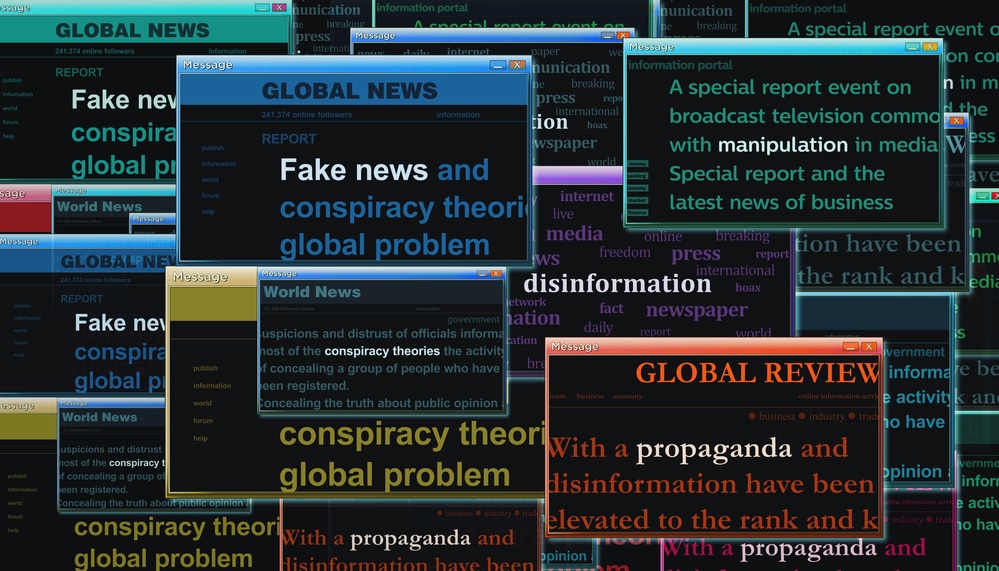Public ignorance, disinformation, and propaganda have impacted society for all of history. People once thought the problem was lack of access to information—something now disproven in the internet age. Though government and media controlled narratives (often deliberate lies) have always made knowing the truth difficult, we have reached a new era in the rapid spread of propaganda.
Since Hamas’ October 7 attack on Israel, things have gone into overdrive, I suppose for the nth time. Even those with a strong eye for misinformation are struggling to parse truth out of this conflict. However, each individual event doesn’t mean much to the larger picture or how we should view it. We know that Hamas intentionally slaughtered a lot of civilians and that Israel intentionally airstrikes civilian targets. Holding strong principles is the best defense against being swayed by each reported horror.
Americans, and by extension presumably the entire world, have been harangued about the dangers of misinformation since Donald Trump’s election in 2016 was blamed on Russians buying a small amount of Facebook ads to confuse Boomers instead of the many systematic failures of America’s political class. To the free-thinking and liberty-oriented, it was clearly nefarious from the get-go. Censors are always entrenched powers who want you to believe certain things. Often they themselves were spreading actual misinformation. Politicians and governments lie quite a lot, but public “fact checking,” something which once simply found citations about claims made by politicians, consumed the media space telling you what to believe. It got much worse—for your safety, of course—in the COVID era.
When Russia invaded Ukraine, thus ending COVID as a public concern, a strange phenomenon occurred. Instead of normal war reporting, the news was filled with commentators saying nonsense about the power of sanctions. It consumed media coverage to the extent that it was nearly impossible to find anything meaningful which reported on the invasion. When Hamas attacked Israel, thus ending Russia-Ukraine as a public concern, there was more information about the conflict, but also a much more entrenched propaganda machine on both sides. Further, Gaza is quite isolated and neutral observers are nearly non-existent within the Gaza Strip. There is also deep-seated polarization on this conflict, making people quick to believe bad things about the side they oppose. We have heard many extreme stories, but fewer which can be verified in a credible way.
A series of high profile instances of irresponsible reporting have showcased why it is so hard for people to know what to believe. The first, and most prominent, was the “forty decapitated babies” claim. That never even was the claim; instead, it was that there were forty dead children, some of them decapitated. The media didn’t do a good job of clarifying this. While the Israeli Defense Forces were refusing to verify the story, The Grayzone found that the sole source was a radical settler who had been known to launch pogroms against Palestinians in the West Bank. It seems to be true that some infants were decapitated in the massacre, but we still know little about the circumstances.
On the other side, there has been the Al-Ahri Hospital bombing in Gaza. We were initially told that the hospital collapsed and 500 people died. The media put too much faith in the Gaza Health Ministry, which is controlled by Hamas, a partisan in the conflict. Hamas blamed Israel, while Israel blamed a failed Islamic Jihad rocket, and some Israel supporters suggested it ignited explosives Hamas was storing in the hospital. It turned out the explosion was in the parking lot and the hospital is standing; casualties are unknown, and both sides still blame each other with forensic experts disagreeing on the evidence. After this, we were told that an ancient Christian Church in Gaza was bombed, and all of the initial reports were that this important piece of human heritage was destroyed entirely. It turned out that an attached building where many congregants where sheltering was destroyed. It was a deadly bombing though, something verified by former Congressman Justin Amash, who lost many family members in the attack, including an infant cousin.
In all the above cases, an event happened, but the story was spread in an inaccurate and inflammatory way. I have a strong eye for separating truth and fiction, and it hasn’t been easy for me to do so in Gaza. A recent demonstration of the Unreal Engine 5, a program for making videogames, went around Twitter which showed a person modifying a burning car in “real time.” It is startling how much harder it will get to distinguish truth from fiction, with CGI videos indistinguishable from real life. However, the fact is that in war the horrific details don’t change the big picture: a lot of civilians have been killed on both sides. Which specific atrocities are committed by Hamas or Israel do not change the fact that the cycle of violence needs to stop. These stories, true or false, are primarily spread for the purpose of getting you to support war.
Throughout history, many wise men have said that you need a strong foundation of virtue to avoid being driven down the wrong path. Christians may think of the parable about how a house built on stone weathers a storm. [Luke, 6:46-49] Alternately, Plutarch wrote, “So true is it that men’s judgments are unstable and may easily be swayed and carried away…from their own rational thoughts, unless they acquire strength and steadiness of purpose from philosophy and reason.” [Life of Timoleon, 6] In our age, these lessons are more important than ever. That war is awful is why we oppose it: its awfulness is not a reason to support more war. Waiting for facts to come out may make you feel less able to rapidly respond, but you are unlikely to make good decisions in the heat of anger. As Plutarch continues, “It is not enough that our actions should be noble and just: the conviction from which they spring must be permanent and unchangeable.”
You will never be able to control the efforts to manipulate, but you can strive to make yourself immune to being manipulated.































